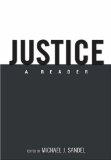Summary | Excerpt | Reading Guide | Reviews | Beyond the Book | Readalikes | Genres & Themes | Author Bio

Critics' Opinion:
Readers' Opinion:
First Published:
Sep 2009, 320 pages
Paperback:
Aug 2010, 320 pages
 Book Reviewed by:
Book Reviewed by:
Micah Gell-Redman
Buy This Book
No one claimed that the banks and investment houses deserved the
money. Their reckless bets (enabled by inadequate government regulation)
had created the crisis. But here was a case where the welfare of
the economy as a whole seemed to outweigh considerations of fairness.
Congress reluctantly appropriated the bailout funds.
Then came the bonuses. Shortly after the bailout money began to
flow, news accounts revealed that some of the companies now on the
public dole were awarding millions of dollars in bonuses to their executives.
The most egregious case involved the American International
Group (A.I.G.), an insurance giant brought to ruin by the risky investments
of its financial products unit. Despite having been rescued with
massive infusions of government funds (totaling $173 billion), the
company paid $165 million in bonuses to executives in the very division
that had precipitated the crisis. Seventy-three employees received
bonuses of $1 million or more.
News of the bonuses set off a firestorm of public protest. This time,
the outrage was not about ten-dollar bags of ice or overpriced motel
rooms. It was about lavish rewards subsidized with taxpayer funds to
members of the division that had helped bring the global financial system
to near meltdown. Something was wrong with this picture. Although
the U.S. government now owned 80 percent of the company, the
treasury secretary pleaded in vain with A.I.G.’s government- appointed
CEO to rescind the bonuses. “We cannot attract and retain the best
and the brightest talent,” the CEO replied, “if employees believe their
compensation is subject to continued and arbitrary adjustment by the
U.S. Treasury.” He claimed the employees’ talents were needed to
unload the toxic assets for the benefit of the taxpayers, who, after all,
owned most of the company.
The public reacted with fury. A full-page headline in the tabloid
New York Post captured the sentiments of many: “Not So Fast You Greedy
Bastards.” The U.S. House of Representatives sought to claw back
the payments by approving a bill that would impose a 90 percent tax on
bonuses paid to employees of companies that received substantial bailout
funds. Under pressure from New York attorney general Andrew
Cuomo, fifteen of the top twenty A.I.G. bonus recipients agreed to
return the payments, and some $50 million was recouped in all. This
gesture assuaged public anger to some degree, and support for the
punitive tax mea sure faded in the Senate. But the episode left the
public reluctant to spend more to clean up the mess the financial industry
had created.
At the heart of the bailout outrage was a sense of injustice. Even before
the bonus issue erupted, public support for the bailout was hesitant
and conflicted. Americans were torn between the need to prevent an
economic meltdown that would hurt everyone and their belief that funneling
massive sums to failed banks and investment companies was deeply
unfair. To avoid economic disaster, Congress and the public acceded.
But morally speaking, it had felt all along like a kind of extortion.
Underlying the bailout outrage was a belief about moral desert:
The executives receiving the bonuses (and the companies receiving the
bailouts) didn’t deserve them. But why didn’t they? The reason may be
less obvious than it seems. Consider two possible answers—one is
about greed, the other about failure.
One source of outrage was that the bonuses seemed to reward
greed, as the tabloid headline indelicately suggested. The public found
this morally unpalatable. Not only the bonuses but the bailout as a
whole seemed, perversely, to reward greedy behavior rather than punish
it. The derivatives traders had landed their company, and the country,
in dire financial peril—by making reckless investments in pursuit
of ever-greater profits. Having pocketed the profits when times were
good, they saw nothing wrong with million-dollar bonuses even after
their investments had come to ruin.
Excerpted from Justice: What’s the Right Thing to Do by Michael J. Sandel. Published in September 2009 by Farrar, Straus and Giroux, LLC. Copyright © 2009 by Michael J. Sandel. All rights reserved.





The Funeral Cryer by Wenyan Lu
Debut novelist Wenyan Lu brings us this witty yet profound story about one woman's midlife reawakening in contemporary rural China.
Your guide toexceptional books
BookBrowse seeks out and recommends the best in contemporary fiction and nonfiction—books that not only engage and entertain but also deepen our understanding of ourselves and the world around us.